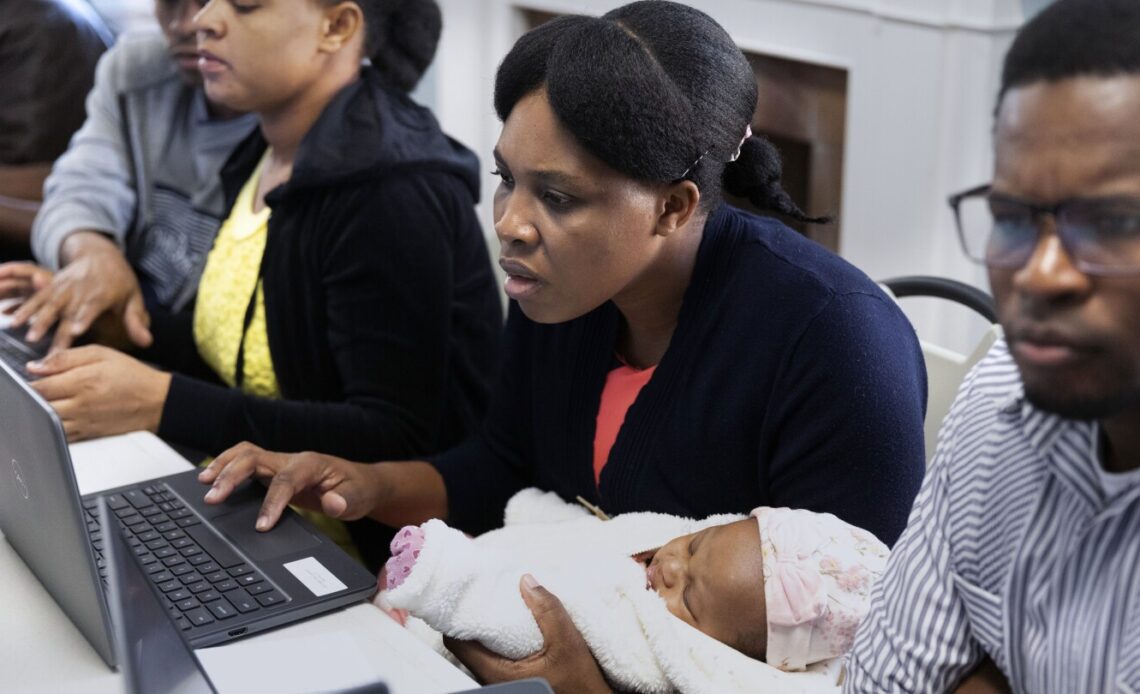BOSTON (AP) — When Ernseau Admettre decided to leave Haiti and head north with his young family in tow, very little was guaranteed.
But the situation in his homeland, beset by poverty and gang violence, had grown so dire that a risky passage to and then across the United States’ southern border offered a kind of hope he said he could never find by staying put.
Admettre discovered Boston through the internet and set his sights on Massachusetts, and the trip took the family through several countries including the Dominican Republic, Nicaragua and Mexico.
“We’re going through a very tragic moment in our country. We have no safety. We cannot definitely have all our needs met in Haiti,” Admettre said through a translator Friday. “Leaving Haiti was the best solution to survive.”
The Admettres — Ernseau, 43; his wife, Jimene, 36: and their children Elionai, 6, and Gabyana, 2 months — eventually arrived at the Boston International Airport right as winter temperatures were settling in.
Ernseau Admettre said he was lucky to be discovered by volunteers working to fill gaps in the shelter system as his family was being kicked out of the airport. He viewed those volunteers as angels sent by God.
“I don’t have any family who lives in the United States,” he said. “We didn’t expect to receive this welcome or experience because we have no family ties here.”
The family is now one of eight that have have found shelter at a rectory building at the Bethel AME Church in Boston’s Jamaica Plain neighborhood. The families — which include 13 children ranging from infants to a 15-year-old — total 28 individuals, according to Geralde Gabeau, executive director of the Immigrant Family Services Institute in Boston, which is helping provide services.
Admettre said he has received a work authorization and hopes to start bringing in money so his family can move out of the shelter and into an apartment. He said he has studied business administration and computer sciences, and is also a tailor.
Gabeau said the migrants are determined to work hard to find their way in the country. She said they are focused first on getting authorized to work. The organization hopes to bring in employers in January to help those living in the rectory find a way to a job and a more permanent home.
For now they live and cook together, and take English and computer classes.
“They live as a community,” Gabeau said,…

